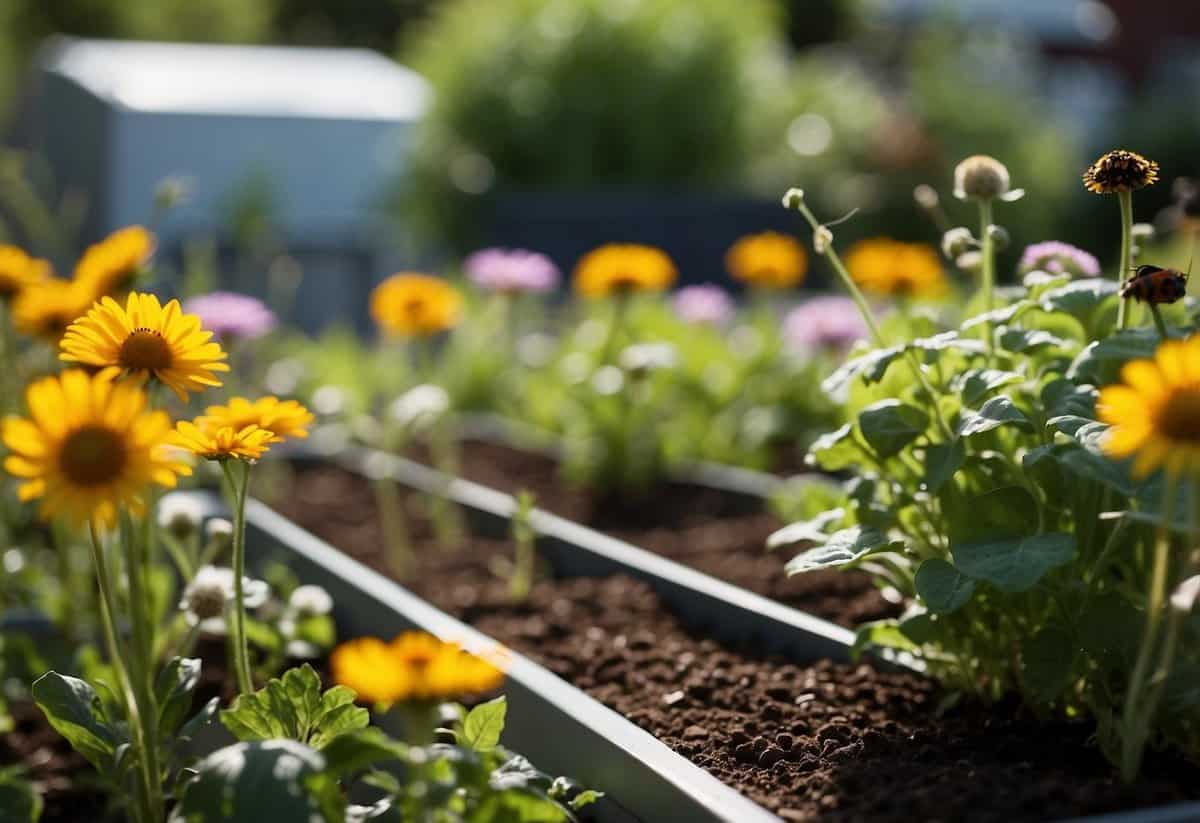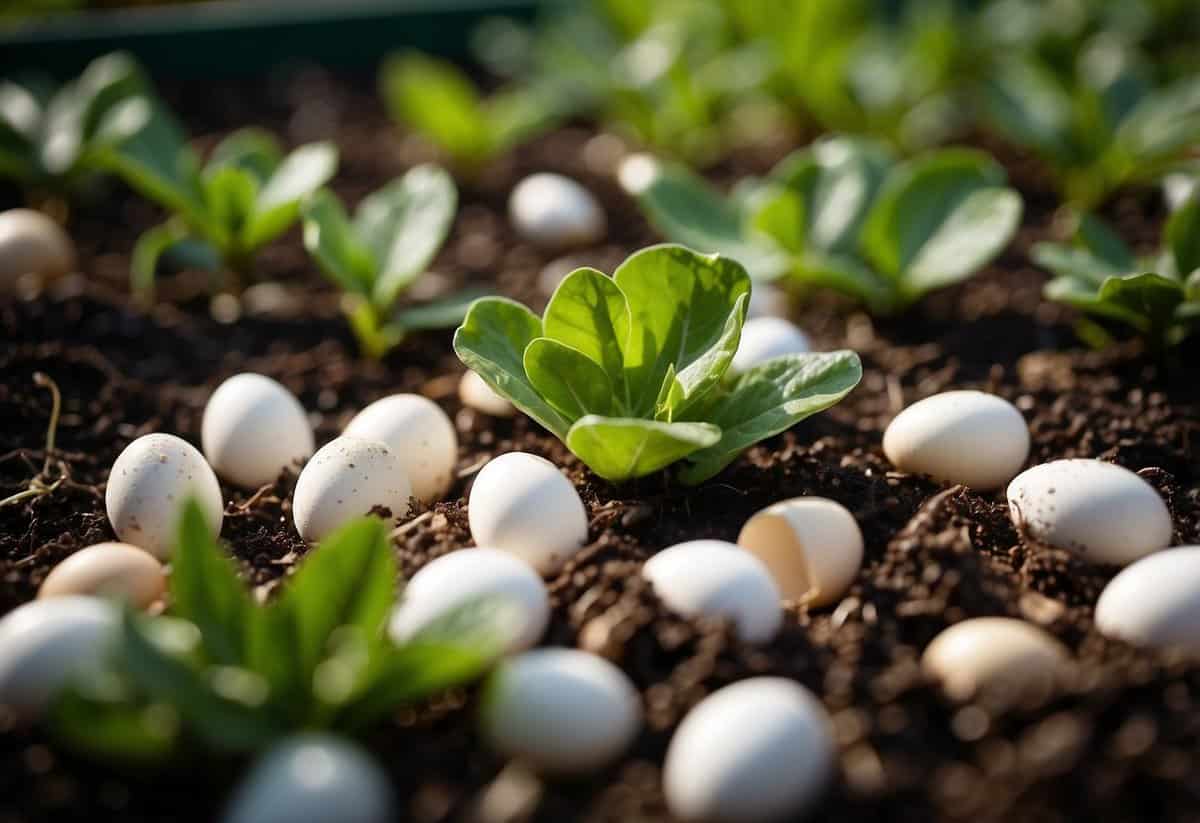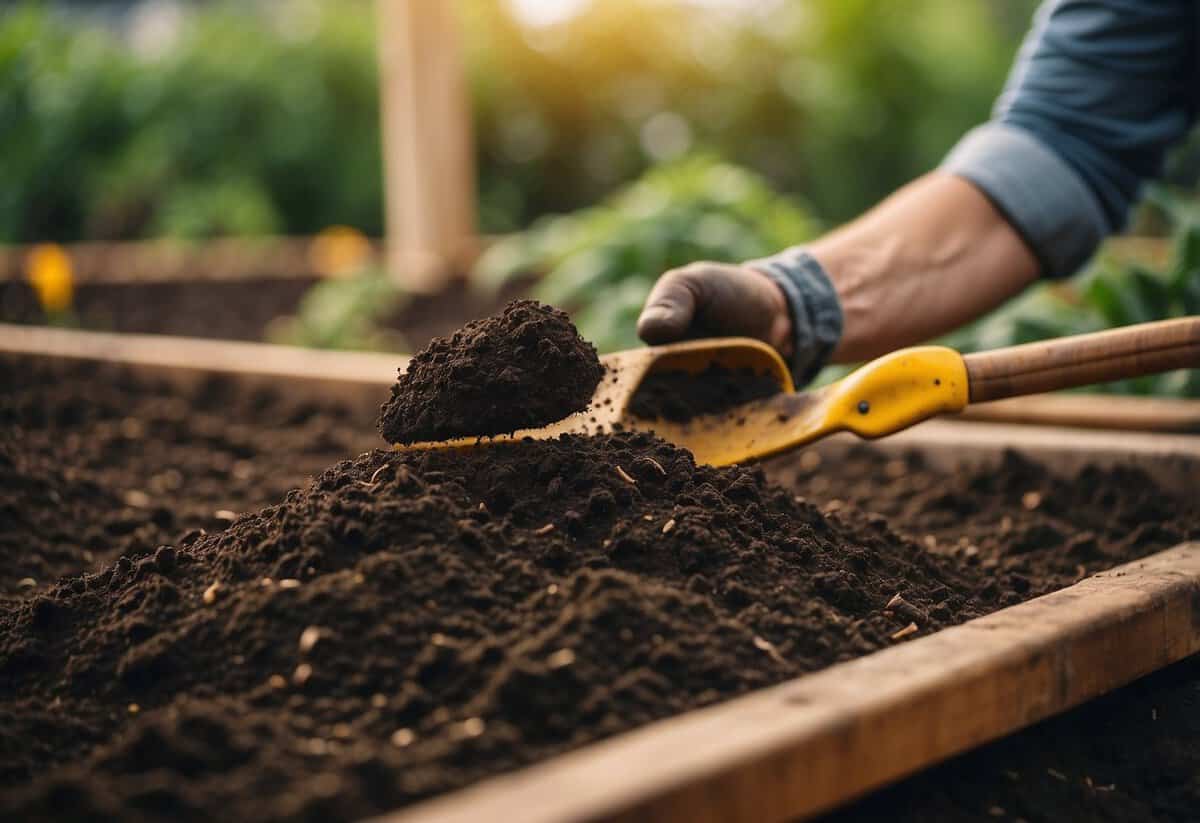Organic Garden Hacks: Boost Your Green Thumb with Simple Tips
Gardening can be a fun and rewarding hobby, but it also comes with its challenges. When you decide to go organic, you might face even more obstacles, like pests and soil health. So, how can you make your organic gardening experience easier and more productive?

By using some simple organic gardening hacks, you can save time, reduce effort, and improve your garden’s yield. These tips and tricks can help both seasoned gardeners and beginners enjoy a thriving organic garden.
1) Use Coffee Grounds to Enrich Your Soil

Coffee grounds can be a great addition to your garden.
They help improve soil structure and add organic material to your garden beds.
You can sprinkle used coffee grounds directly onto the soil or mix them into your compost.
This helps maintain moisture and can boost soil fertility.
Coffee grounds can also repel certain pests like slugs.
2) Create Compost Bins from Old Pallets

You can easily turn old pallets into useful compost bins. Start by connecting three pallets to form the back and sides of the bin. Use strong twine or zip ties to hold the pallets together.
Adding corner brackets provides extra stability.
A compost bin from pallets makes managing garden waste simple and effective. You can find detailed instructions at GrowVeg.com.
3) Plant garlic to repel pests

Planting garlic in your garden helps keep pests away. Garlic has a strong smell that many pests dislike.
Place garlic cloves near plants like roses, cucumbers, peas, or carrots. This can repel pests naturally and keep your garden healthier.
For more tips, check out these genius garden hacks.
4) Install a Rain Barrel for Natural Irrigation

Setting up a rain barrel is a fantastic way to collect and use rainwater for your garden.
Start by placing the barrel under a downspout. This will help catch rainwater from your roof.
You can increase water flow by adding a diverter to the downspout. This will prevent overflow and direct excess water back through the downspout.
For easier access, install a tap at the bottom of the barrel. This way, you can easily fill watering cans or attach a hose.
Looking for more tips? Check out HGTV’s DIY Rain Barrel Stand.
5) Use Crushed Eggshells for Soil Calcium

Crushed eggshells can be a great addition to your garden soil. They are mostly made of calcium carbonate, which is a key nutrient plants need.
To prepare eggshells, bake them at 200°F for 30 minutes or boil them. Once they are cool, crush them into small pieces.
Sprinkle the crushed eggshells around your plants to slowly release calcium into the soil. This helps with cell and root development, and aids in fruit ripening.
6) Grow Marigolds to Deter Nematodes

Marigolds aren’t just pretty flowers; they are your garden’s secret weapon against nematodes. These tiny pests can damage plant roots and hamper growth.
The roots of marigolds release natural chemicals that can kill nematodes. Planting marigolds around your vegetables can help reduce nematode populations.
Remember to plant enough marigolds to surround your crops. This ensures the nematodes come into contact with the marigold roots. Learn more about this tactic here.
7) Make organic fertilizer from banana peels

You can create a powerful organic fertilizer using banana peels. Start by collecting the peels and cutting them into small pieces. This helps them break down faster.
Next, you can dehydrate and grind the pieces into a fine powder. Sprinkle this powder directly onto your garden soil or mix it with water to pour on your plants.
Another method involves soaking banana peels in water for a week. Use this banana peel water to fertilize potassium-loving plants. This easy hack boosts your garden’s health naturally. Try it out in your garden today!
8) Use Vinegar to Kill Weeds Naturally

Vinegar is a great way to get rid of weeds without using chemicals. It’s simple and effective.
To make a vinegar weed killer, mix one gallon of white vinegar with one tablespoon of dish soap. For tougher weeds, you can add one cup of salt.
Use a spray bottle to apply the solution to the leaves and stems on a sunny day. Repeat every 2-3 days until the weeds are gone.
For more details, you can check out this guide on vinegar weed killer.
9) Create a natural insect repellent with neem oil

You can make an effective and safe insect repellent for your garden with neem oil. Neem oil is a natural substance that works well against many pests like aphids, spider mites, and whiteflies.
To create your spray, mix 2 tablespoons of 100% neem oil with 1 gallon of water. Add 2 teaspoons of mild dish soap to help the oil mix properly.
Pour the mixture into a spray bottle and shake well before using it on your plants. You can apply this spray once a week to keep garden pests at bay.
For more detailed steps, you can refer to this guide on homemade neem oil spray.
10) Start seeds in eggshell halves

Starting seeds in eggshell halves is a fun and easy way to kickstart your garden. First, gather some cracked eggshells. Make sure they are cleaned and dried.
Fill each eggshell with seed starting mix. Plant your seeds and keep the mix moist.
When your seedlings grow their first true leaves, transplant them into a bigger pot or your garden. The eggshells help add calcium to the soil, giving your plants a healthy boost.
For more tips, check out this guide.
Soil Preparation Techniques

To create a productive organic garden, start by enhancing your soil with the right materials. This section focuses on using compost and natural amendments to improve soil health and fertility.
Choosing the Right Compost
Compost is essential for a healthy garden. It adds nutrients, improves soil structure, and boosts microbial activity. When selecting compost, go for well-aged varieties with rich, dark color and earthy smell. Avoid compost with visible chunks of undecayed material.
Homemade compost from kitchen scraps and yard waste can be beneficial. Mix green materials (like vegetable peelings) with brown materials (like dry leaves) in a balanced ratio. Aerate the compost pile regularly to speed up decomposition. Ensure it stays moist, but not overly wet.
Store-bought compost can also be effective. Look for organic compost that includes diverse materials. Check the label for certification to ensure it’s free of chemicals or pathogens. Adding compost to your garden bed enriches the soil, making it ideal for planting.
Natural Soil Amendments
Using natural soil amendments improves soil health without harmful chemicals. Wood ash can raise soil pH and add potassium. Apply no more than 20 pounds per 1,000 square feet annually to prevent alkalinity issues.
Epsom salt provides magnesium and sulfate. Use 1 tablespoon per plant monthly. Mix it with water for a foliar spray or apply the granules to the soil around your plants.
Organic matter like leaf mold and well-rotted manure enhances soil structure and fertility. Leaf mold improves moisture retention, while manure adds nutrients. Spread these materials over your garden bed and mix them into the soil.
Cover crops like clover or rye can add nitrogen to the soil and improve its structure. Grow them during the off-season and till them into the soil before planting your main crops. This practice enhances soil health and prepares it for the growing season.
Pest Control Methods

Keeping garden pests at bay doesn’t have to involve harmful chemicals. You can use companion planting to naturally deter insects and homemade insecticidal soaps to keep your plants healthy.
Using Companion Planting
Companion planting involves growing certain plants together to repel insects or attract beneficial ones. For example, marigolds can deter aphids and nematodes, while basil can keep mosquitoes and flies away.
Planting garlic near roses can help keep aphids away from your beautiful blooms. Similarly, nasturtiums planted near cucumbers or tomatoes can attract aphids, keeping them off your main crops. It’s a natural way to create a strong, self-sustaining ecosystem in your garden.
Examples of Companion Planting:
- Marigolds: Repel aphids and nematodes.
- Basil: Repels mosquitoes and flies.
- Garlic: Keeps aphids away from roses.
- Nasturtiums: Attract aphids, protecting cucumbers and tomatoes.
By combining these plants, you can naturally protect your garden from pests while boosting plant growth.
Homemade Insecticidal Soaps
Insecticidal soaps are an effective and eco-friendly way to control pests like aphids, mites, and thrips. You can make your own at home with simple ingredients such as dish soap and water. Mix 1 tablespoon of dish soap with 1 quart of water, then spray the mixture on the affected plants.
These soaps work by breaking down the outer layer of insects, causing them to dehydrate and die. They are safe for most plants but avoid using them on delicate ones like ferns. Always test a small area first to make sure your plants can handle it.
Steps to Make Homemade Insecticidal Soap:
- Mix 1 tablespoon of dish soap with 1 quart of water.
- Pour the mixture into a spray bottle.
- Spray on affected plants, covering all surfaces.
This simple solution helps protect your garden without harming the environment or your plants.
Watering Tips

Watering is key to keeping your garden healthy. Here are some practical ways to ensure your plants receive the right amount of water without wasting resources.
Efficient Drip Irrigation
Drip irrigation is a great way to water your garden with precision. This method delivers water directly to the plant roots through a series of tubes and emitters. It helps conserve water and promotes healthier growth by preventing over-watering.
You can make a DIY drip system using water bottles. Simply pierce the bottle cap with small holes and bury the bottle neck-down near your plants. This allows water to drip slowly and steadily.
Another option is using a drip irrigation kit, which includes all the necessary components. These kits are available at garden stores and are easy to set up.
Rainwater Harvesting
Harvesting rainwater is an eco-friendly and cost-effective way to water your garden. By collecting and storing rainwater, you can reduce your reliance on municipal water supplies.
To get started, set up a rain barrel under your roof’s downspout. Make sure the barrel has a spigot for easy access. Use the collected water whenever your plants need it.
For a more advanced system, connect multiple barrels or use a larger cistern. This setup can store more rainwater, ensuring you have enough supply during dry periods.
In addition, rainwater is generally free from chemicals, making it ideal for organic gardens.







